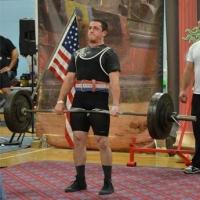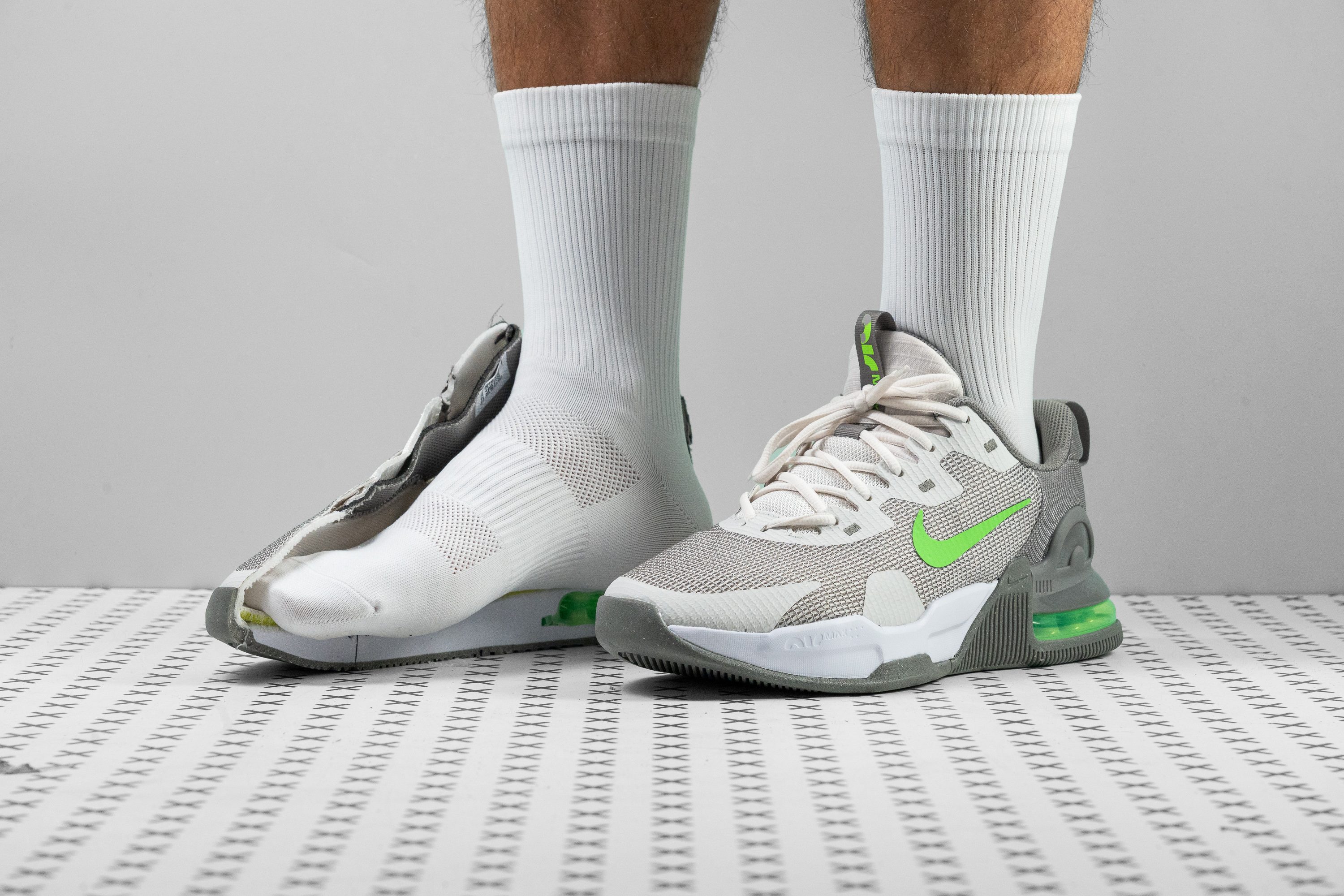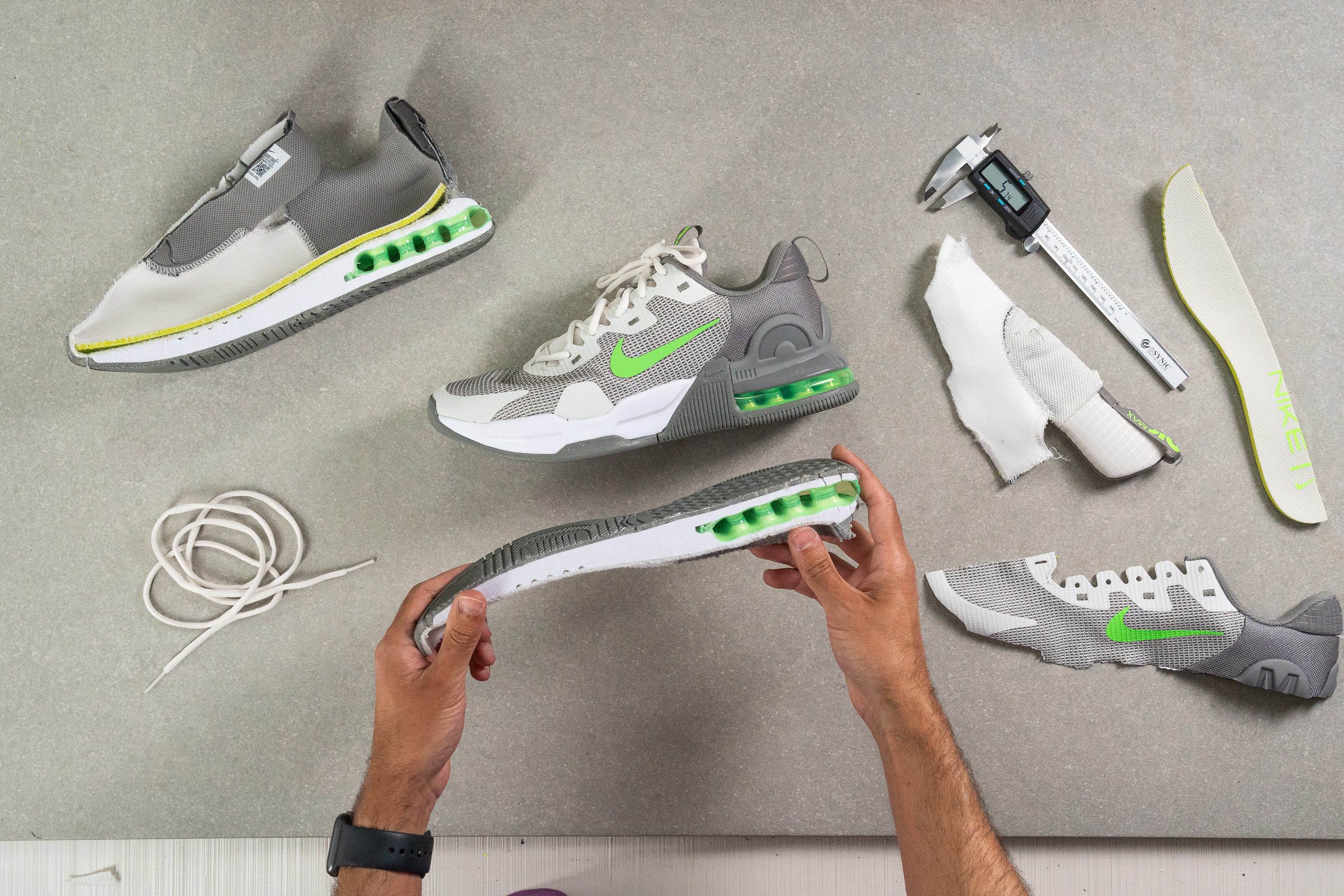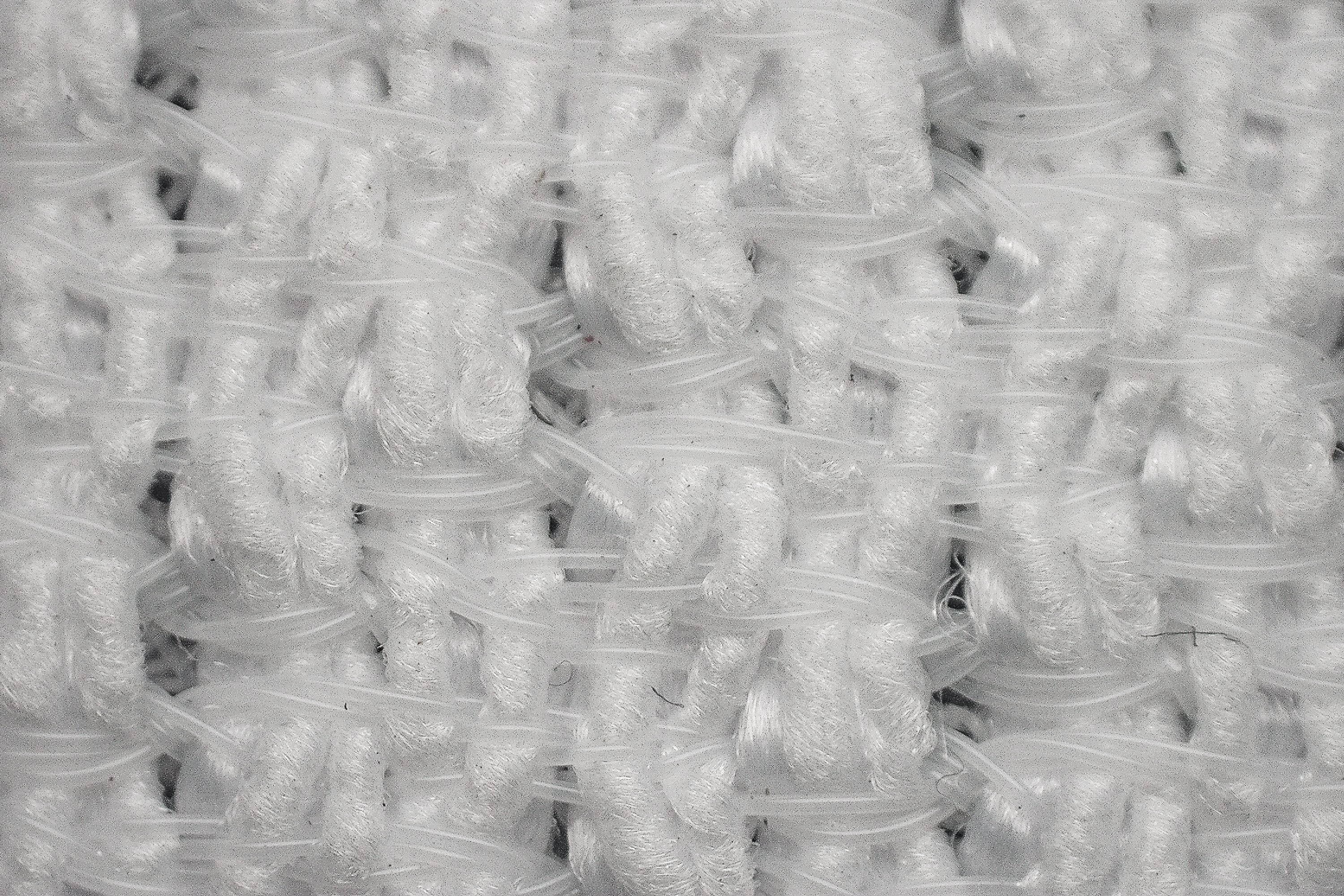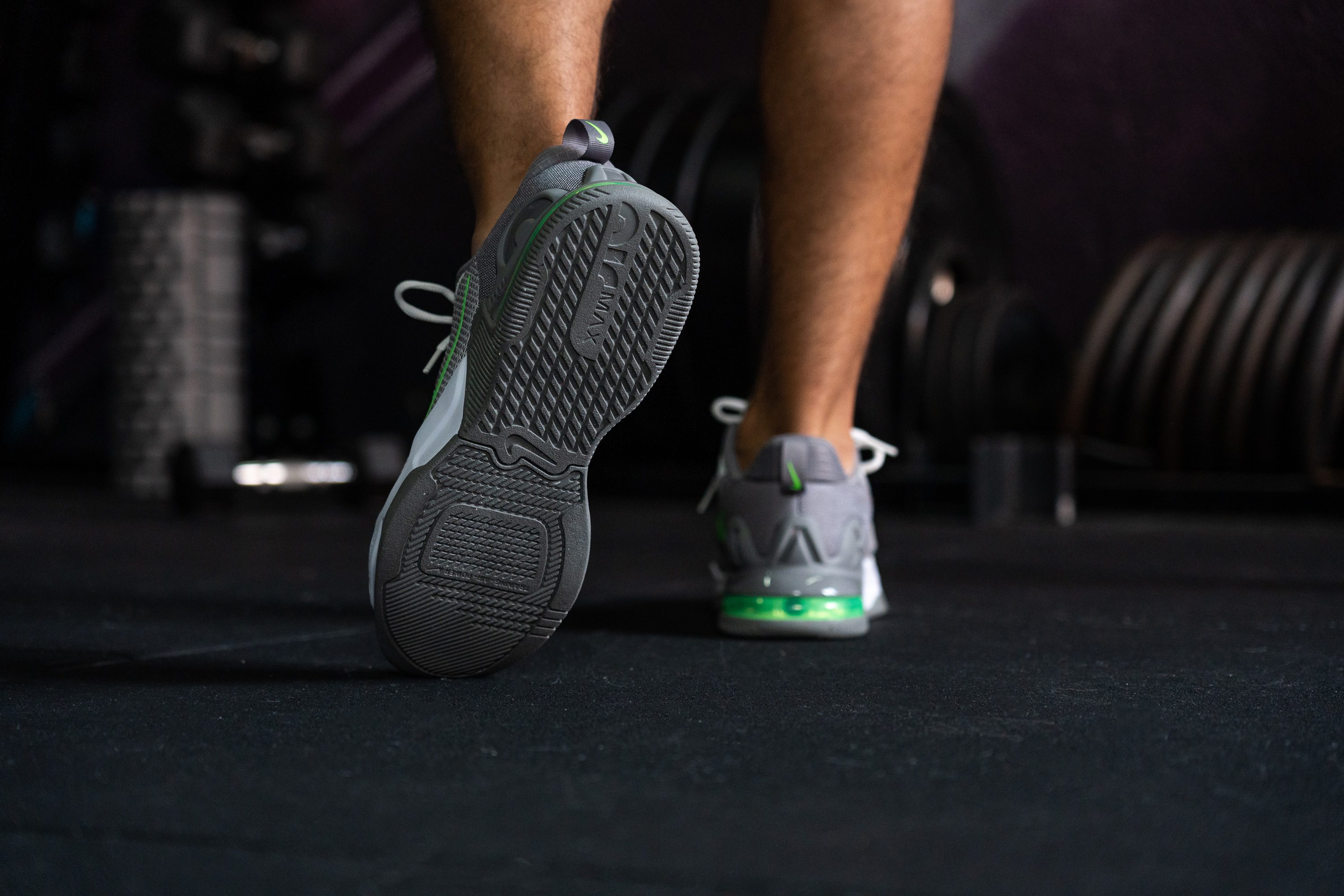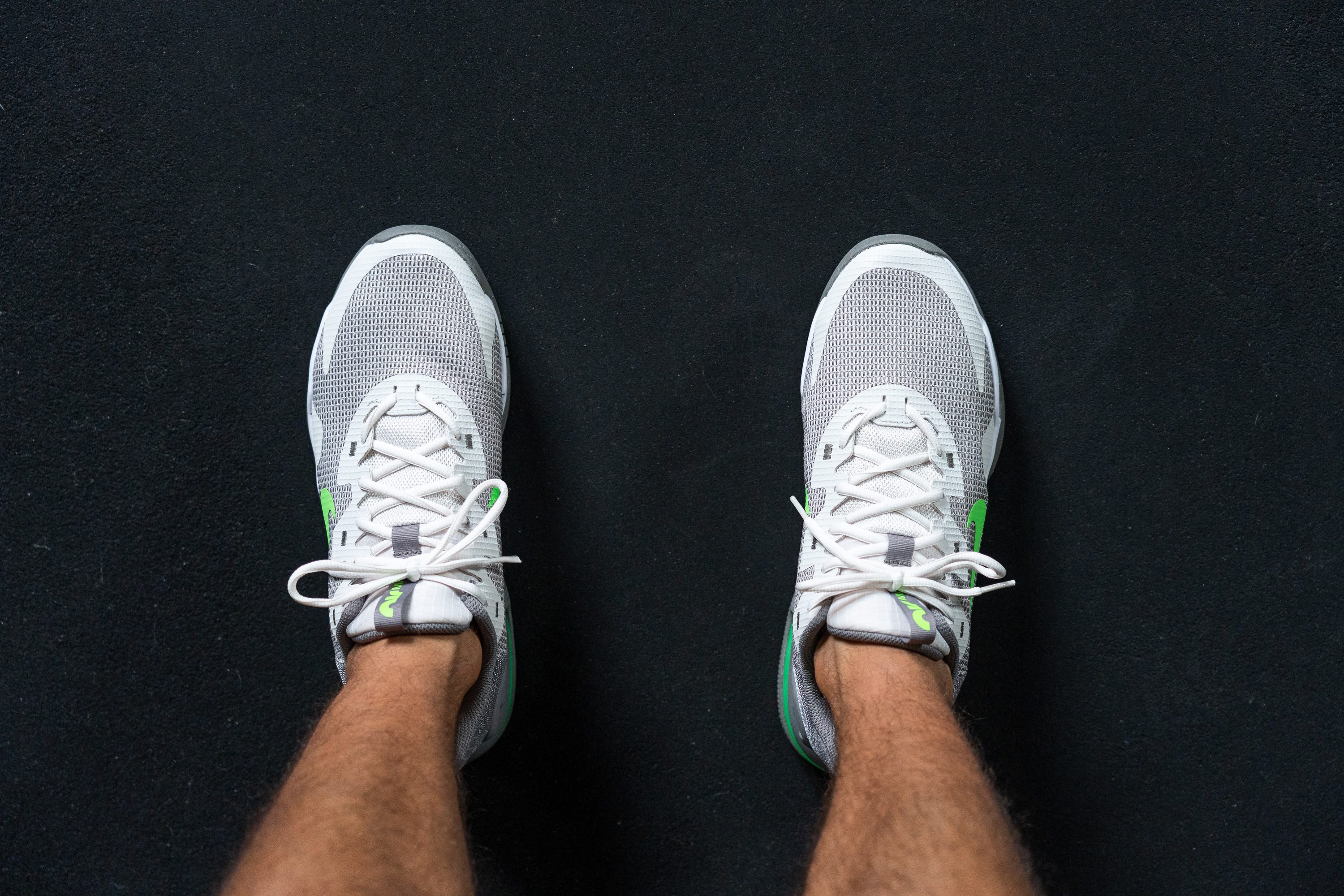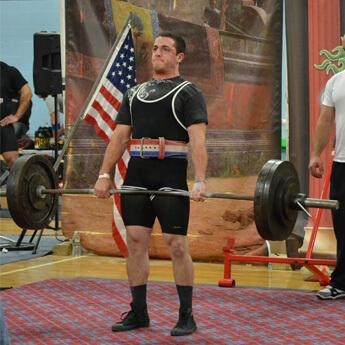Our verdict
- Our top pick in best Nike workout shoes
- Our top pick in best cheap gym shoes
Pros
- Excellent value for money
- Stable for easy weightlifting
- Smooth heel-to-toes
- True to size
- Comfortable in-shoe feel
- Durable outsole
- Very good looks
Cons
- Not breathable
- Toebox lacks durability
- Not for advanced workouts
Audience verdict
- Top 30% in training shoes
- Top 22% in Nike training shoes
- Top 10% most popular training shoes
Comparison
The most similar training shoes compared
+ + Add a shoe | |||||
|---|---|---|---|---|---|
| Audience score | 90 Great! | 85 Good! | 82 Good! | 87 Great! | |
| Price | $90 | $150 | $150 | $150 | |
| Use | WorkoutGymHIITJumping rope | CrossfitWorkoutCross-trainingGymHIITJumping rope | CrossfitWorkoutCross-trainingGymHIITJumping rope | WorkoutGymHIITJumping rope | |
| Drop lab | 12.0 mm | 8.6 mm | 7.9 mm | 9.8 mm | |
| Heel stack lab | 36.2 mm | 26.0 mm | 25.6 mm | 32.9 mm | |
| Forefoot | 24.2 mm | 17.4 mm | 17.7 mm | 23.1 mm | |
| Weight lab | 13.8 oz / 392g | 11.7 oz / 332g | 12.5 oz / 353g | 11.3 oz / 319g | |
| Breathability | Warm | Breathable | Warm | Breathable | |
| Toebox width at the widest part | Medium | Medium | Medium | Medium | |
| Toebox width at the big toe | Medium | Wide | Wide | Medium | |
| Midsole softness | Balanced | Balanced | Balanced | Balanced | |
| Stiffness | Moderate | Moderate | Moderate | Moderate | |
| Torsional rigidity | Stiff | Stiff | Moderate | Stiff | |
| Heel counter stiffness | Moderate | Stiff | Moderate | Flexible | |
| Toebox durability | Bad | Good | Good | Bad | |
| Heel padding durability | - | Good | Good | Good | |
| Outsole durability | - | Good | Decent | Good | |
| Midsole width in the forefoot | Average | Narrow | Average | Very wide | |
| Midsole width in the heel | Average | Average | Average | Wide | |
| Widths available | Normal | Normal | Normal | Normal | |
| Insole thickness | Average | Average | Average | Thick | |
| Outsole thickness | Average | Average | Average | Thin | |
| Outsole hardness | Hard | Average | Hard | Average | |
| Heel tab | Finger loop | None | Finger loop | None | |
| Tongue: gusset type | Both sides (semi) | Both sides (full) | None | Both sides (semi) | |
| Tongue padding | Average | Average | Average | Thin | |
| Ranking | #9 Top 30% | #19 Bottom 38% | #24 Bottom 22% | #14 Top 46% | |
| Popularity | #3 Top 10% | #4 Top 13% | #27 Bottom 12% | #13 Top 42% |
Who should buy
We can confidently recommend this training shoe from Nike to the following:
- gymgoers who follow easy and intermediate workout regimens
- fitness enthusiasts who need training shoes that can also be worn casually
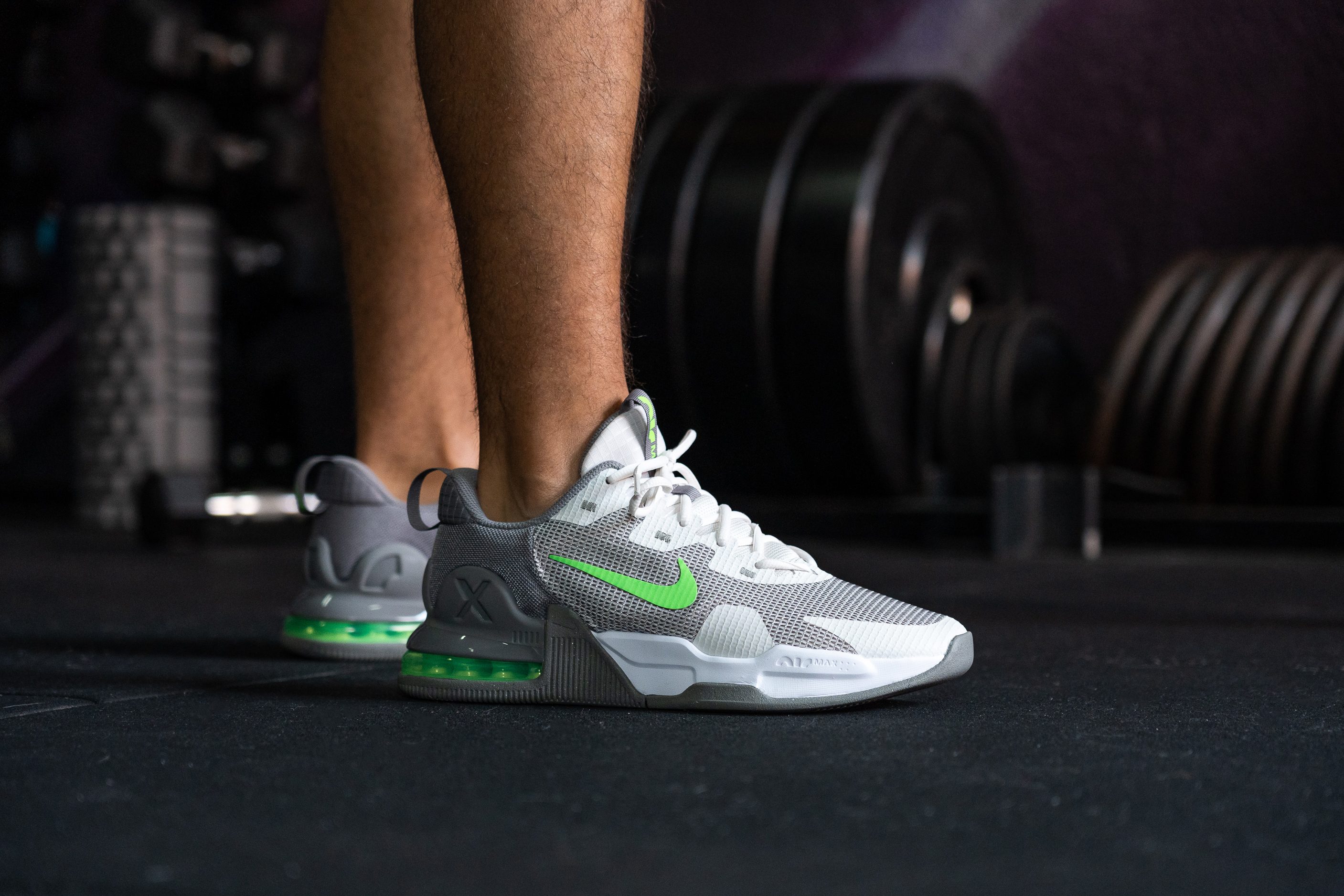
Who should NOT buy
We found that the Air Max Alpha Trainer 5 is not the best bet for people who train hard and lift heavy.
If you need a more serious trainer for advanced workouts, consider Nike's flagship Metcon 8. We found it to be a more weightlifting-ready and overall more durable cross-trainer. Alternatively, check out the Reebok Nano X3, a counterpart of the Metcon.
Breathability
Need an airy trainer for hot and sweaty gyms? Unfortunately, the Alpha Trainer 5 is not your best friend.
Judging by the amount of smoke passing through the upper, ventilation is not this shoe's strongest point.
On a 1-5 scale where 5 is the most breathable, this Nike trainer only scores 2. It is less breathable than the average.
If this is a deal-breaker for you, consider the Nike Zoom Metcon Turbo 2 instead. It's got a perfect breathability score of 5/5.
| Air Max Alpha Trainer 5 | 2 |
| Average | 3.4 |
Durability
Toebox durability
The longevity of this training shoe causes mixed feelings.
Although we cannot expect much from a $90 shoe, we were still disappointed to see the shoe's upper fail miserably in our durability test.
It took a mere second to drill a hole in the toebox, which doesn't normally happen to cross-trainers. Basically, it means that a single toe drag can cause significant wear and tear to this shoe's upper. Not sexy.
We have seen shoes like the Reebok Nano X3 where the knit upper barely got a scratch in the same test.
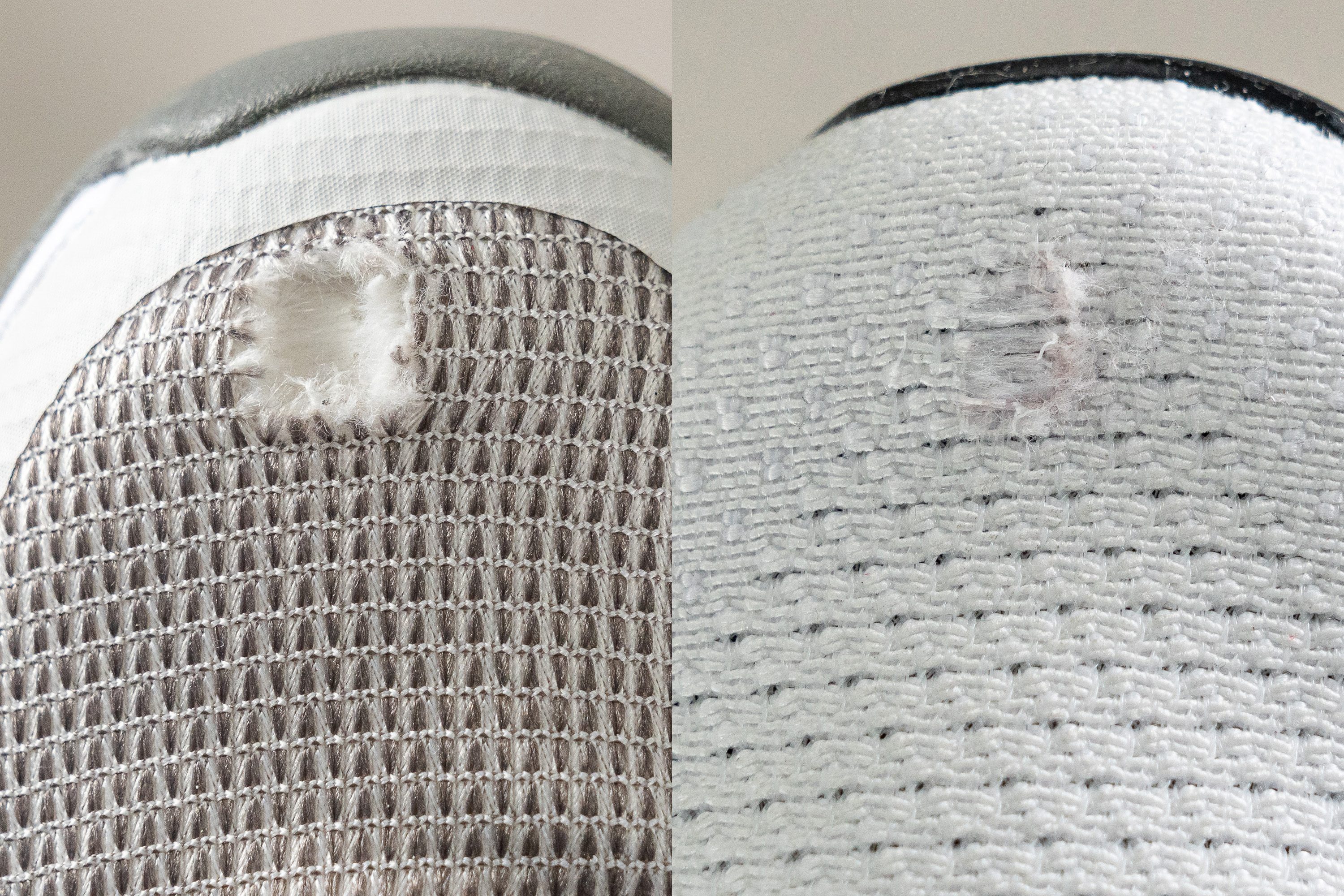
Taking a closer look through a microscope, you can see the quality of threads on the Air Max Alpha Trainer 5...
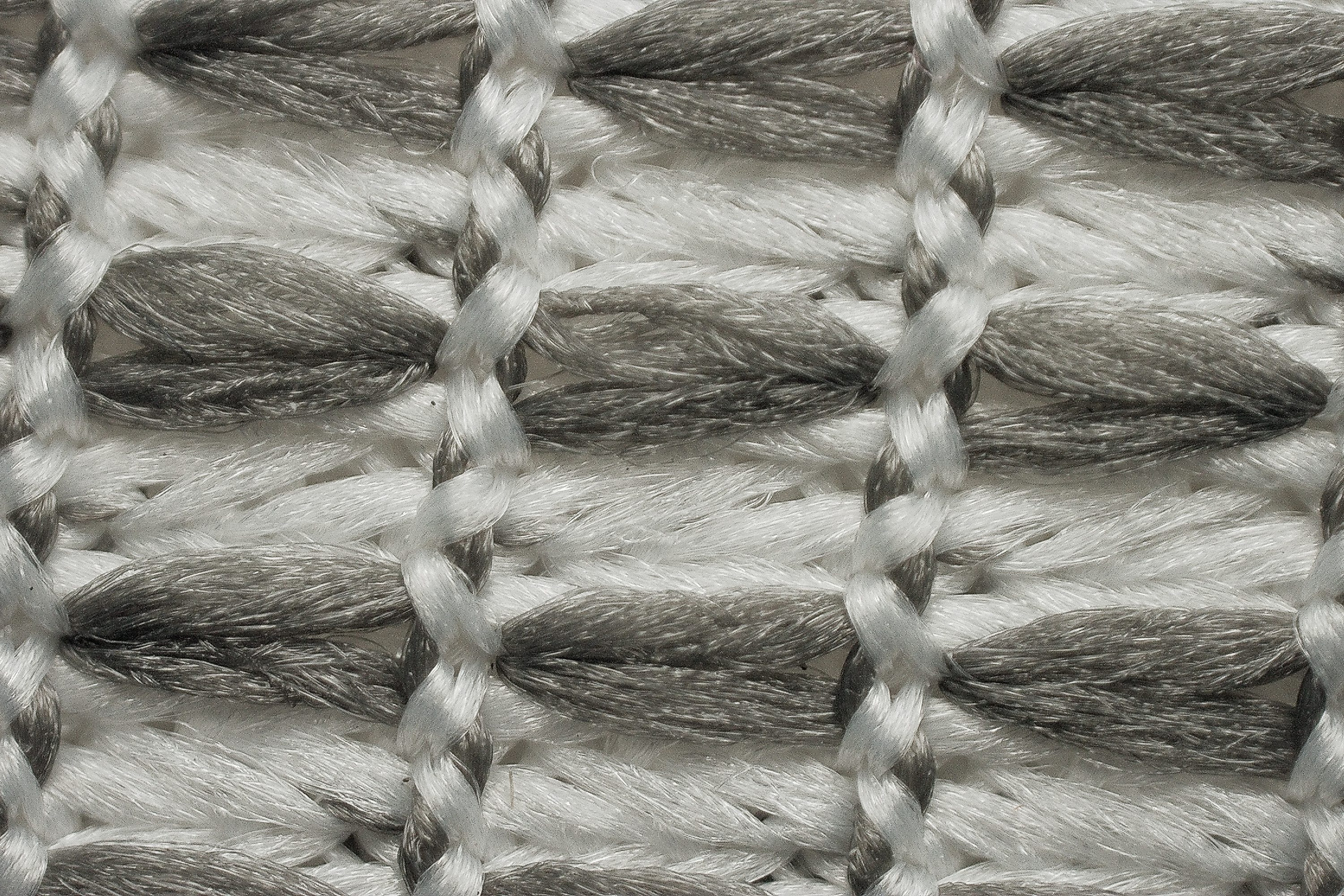
...as opposed to the enhanced wire-like webbing on the Nano X3:
| Air Max Alpha Trainer 5 | 1 |
| Average | 2.6 |
Outsole hardness
This shoe also has one of the hardest rubber compounds that we've seen. At the moment of testing, we found that it is firmer than 93% of our tested training shoes.
Actually, at 90.1 HC, the rubber on this shoe is even harder than the average of hiking shoes (86.3 HC).
Just like with thickness, we associate harder rubber with prolonged shelf life.
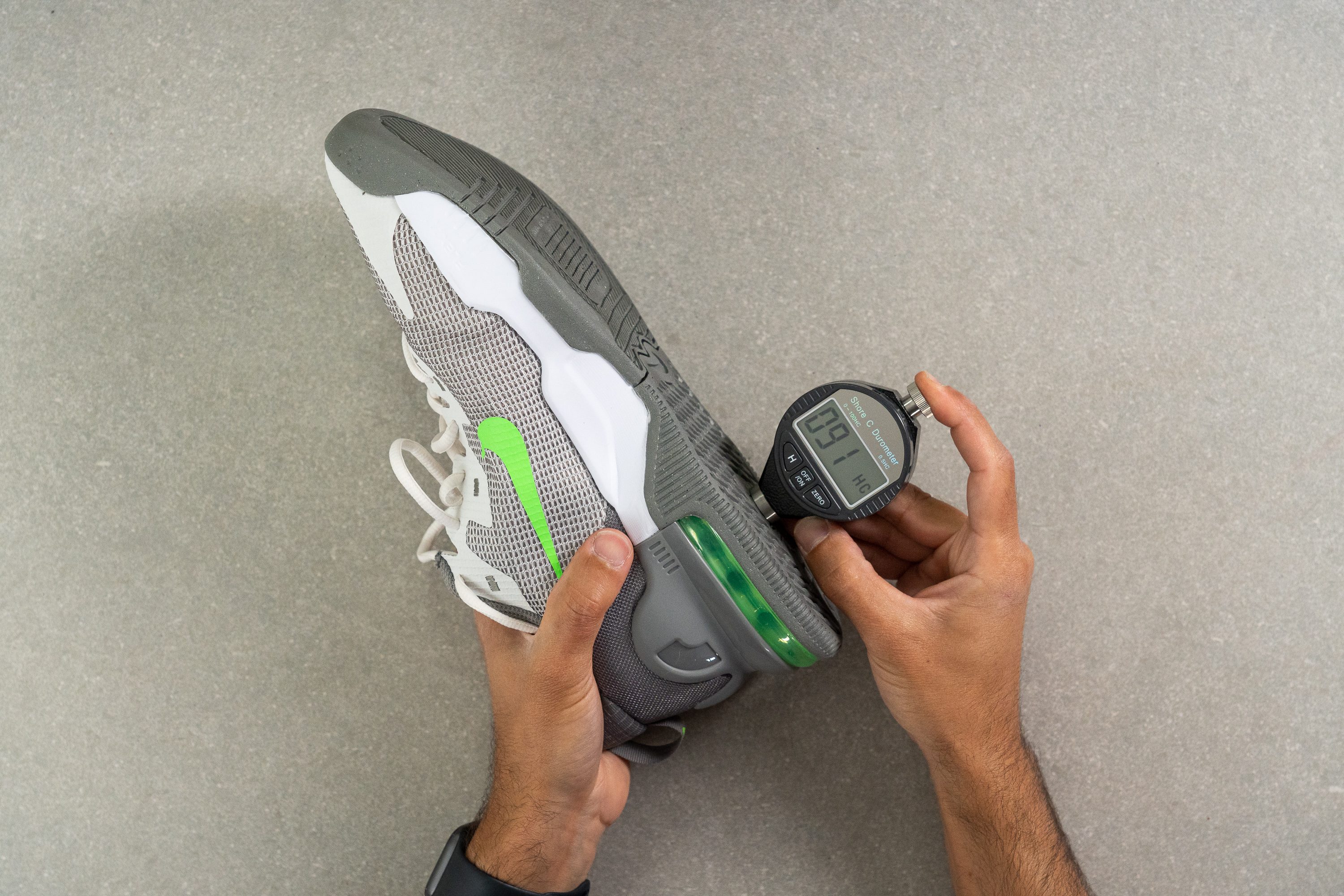
| Air Max Alpha Trainer 5 | 90.1 HC |
| Average | 82.9 HC |
Outsole thickness
The outsole, on the other hand, looks more promising. We measured the rubber layer to be 4.3 mm in the heel, which is a little thicker than average.
Having more rubber means that you can walk on concrete streets without worrying about wearing it off within a few weeks.
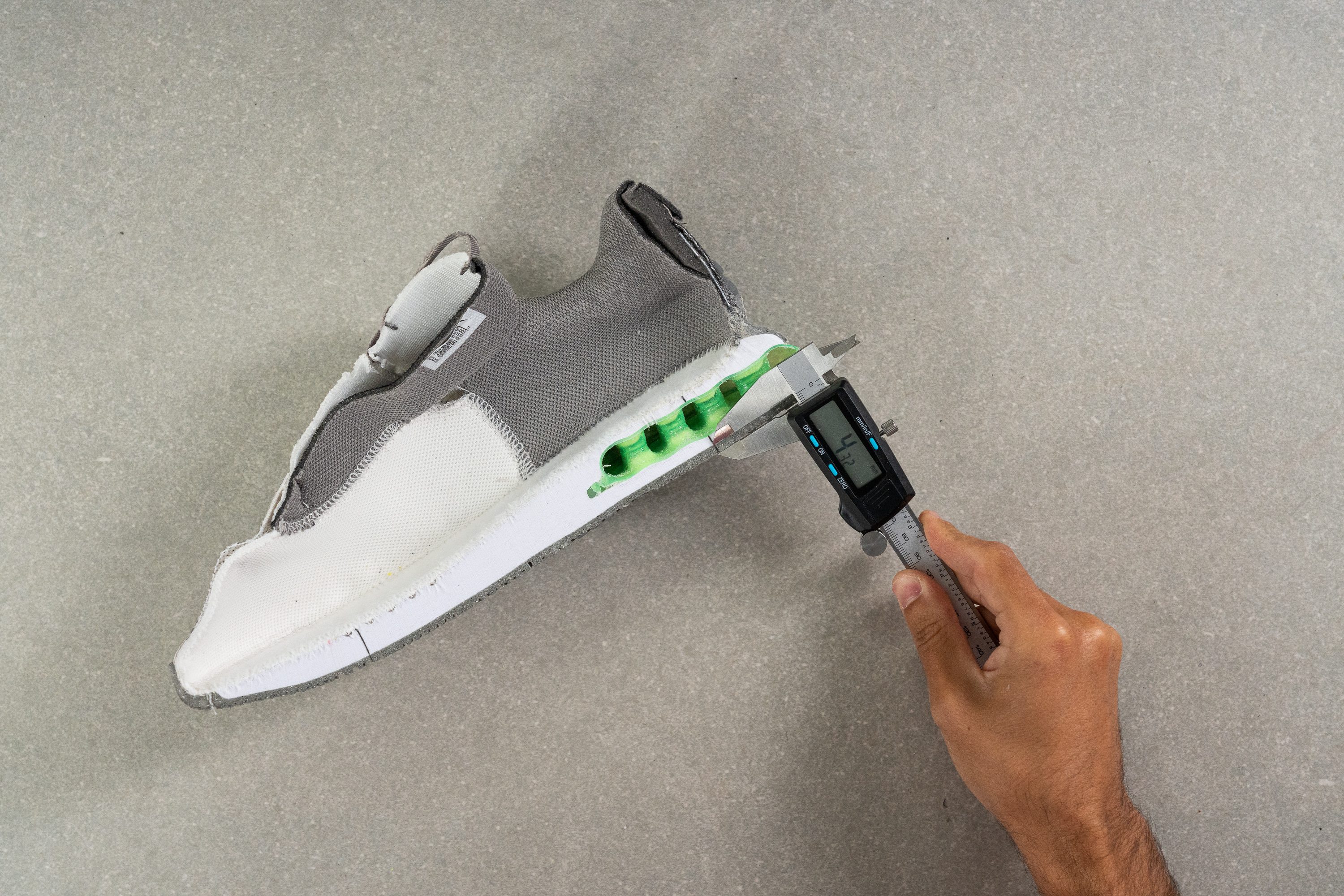
| Air Max Alpha Trainer 5 | 4.3 mm |
| Average | 3.6 mm |
Weight
Tipping the scales at 392g, this is a heavy training shoe.
All that stack of cushioning just couldn't have gone under the radar.
If you want a budget shoe from Nike that is more than 100g lighter than the Alpha Trainer, check out the Nike Legend Essential 2.
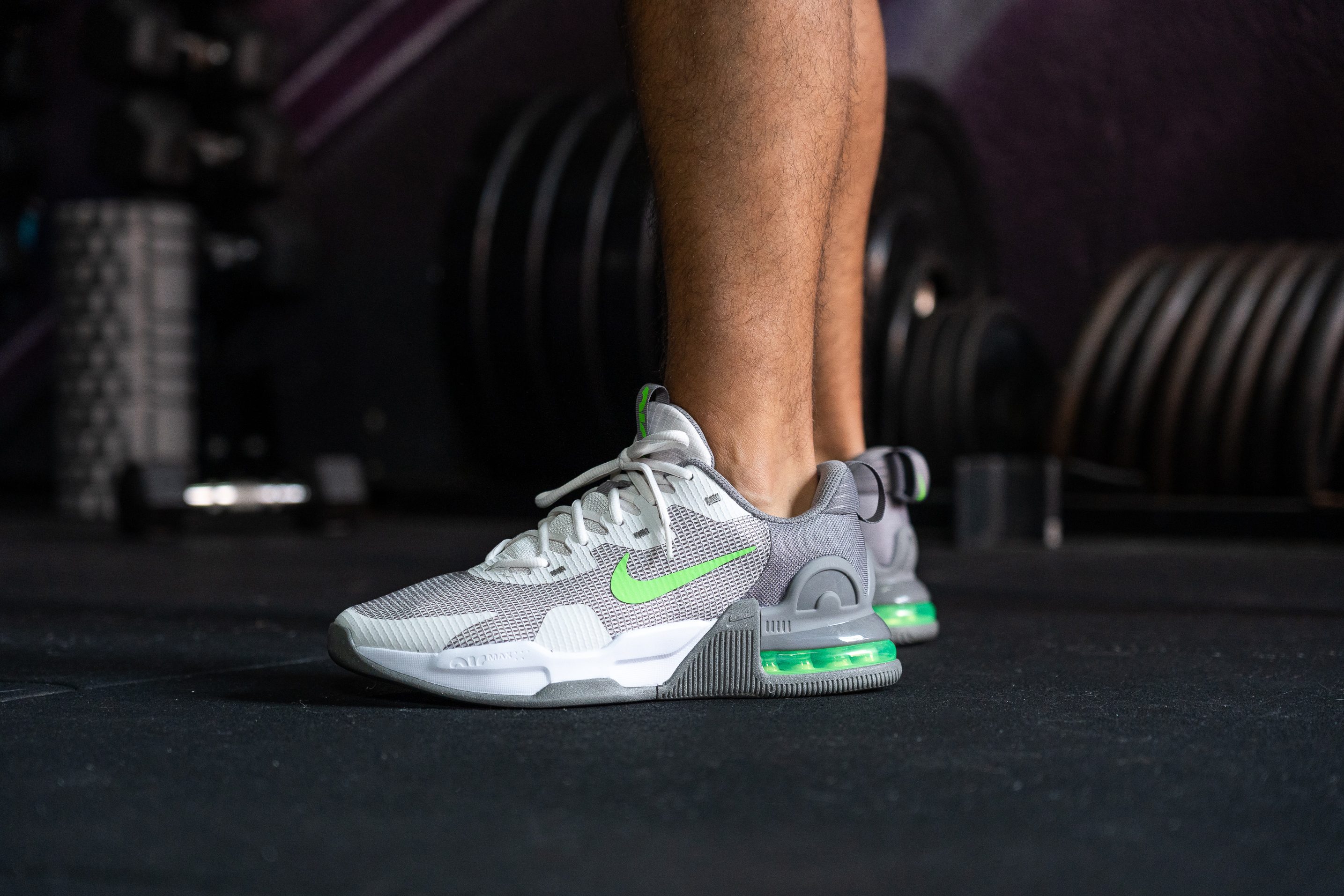
| Air Max Alpha Trainer 5 | 13.83 oz (392g) |
| Average | 10.76 oz (305g) |
Cushioning
Heel stack
Air Max is a rare sight among training shoes from Nike. But there you have it - a large cushy unit keeping your heels protected from impact.
The rest of the cushioning is provided by what appears to be an EVA foam (the type is not specified by Nike).
The presence of Air Max does leave an imprint on the shoe's height. At 36.2 mm in the heel, it is much taller than the average cross-trainer.
We definitely felt a bit disconnected in this shoe after all those grounded trainers that barely ever go above 27 mm. Take the Nike Free Metcon 5 with its humble stack height of 24.2 mm for example.
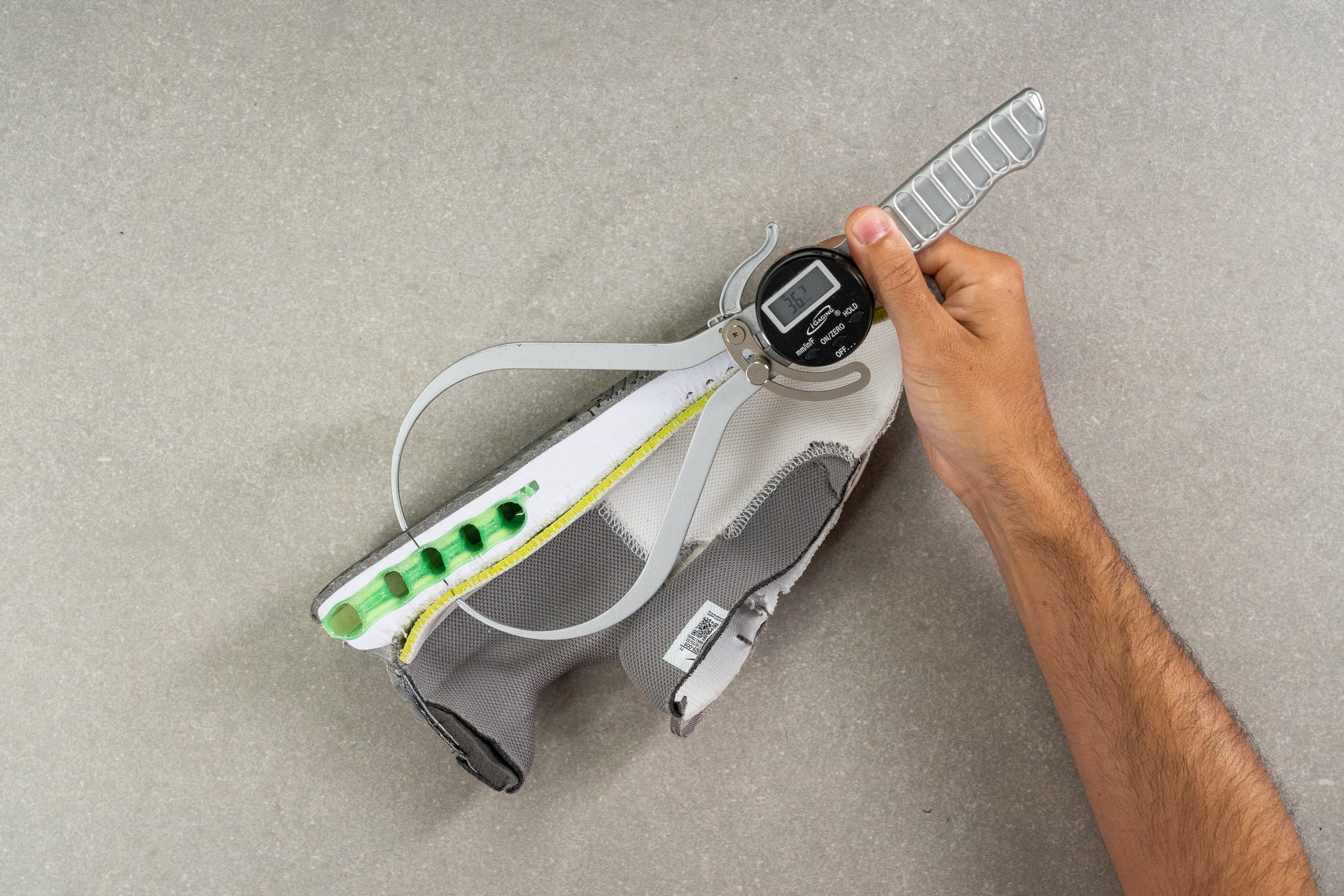
| Air Max Alpha Trainer 5 | 36.2 mm |
| Average | 24.4 mm |
Forefoot stack
As our caliper measurement shows, the forefoot is also quite tall in this shoe. Its forefoot height of 24.2 mm actually equates to how tall most cross-training shoes are in the heel.
The only other trainer that comes close to these parameters is the oddly-shaped Nike SuperRep 3 (31.7 mm in the heel and 27.5 mm in the forefoot).
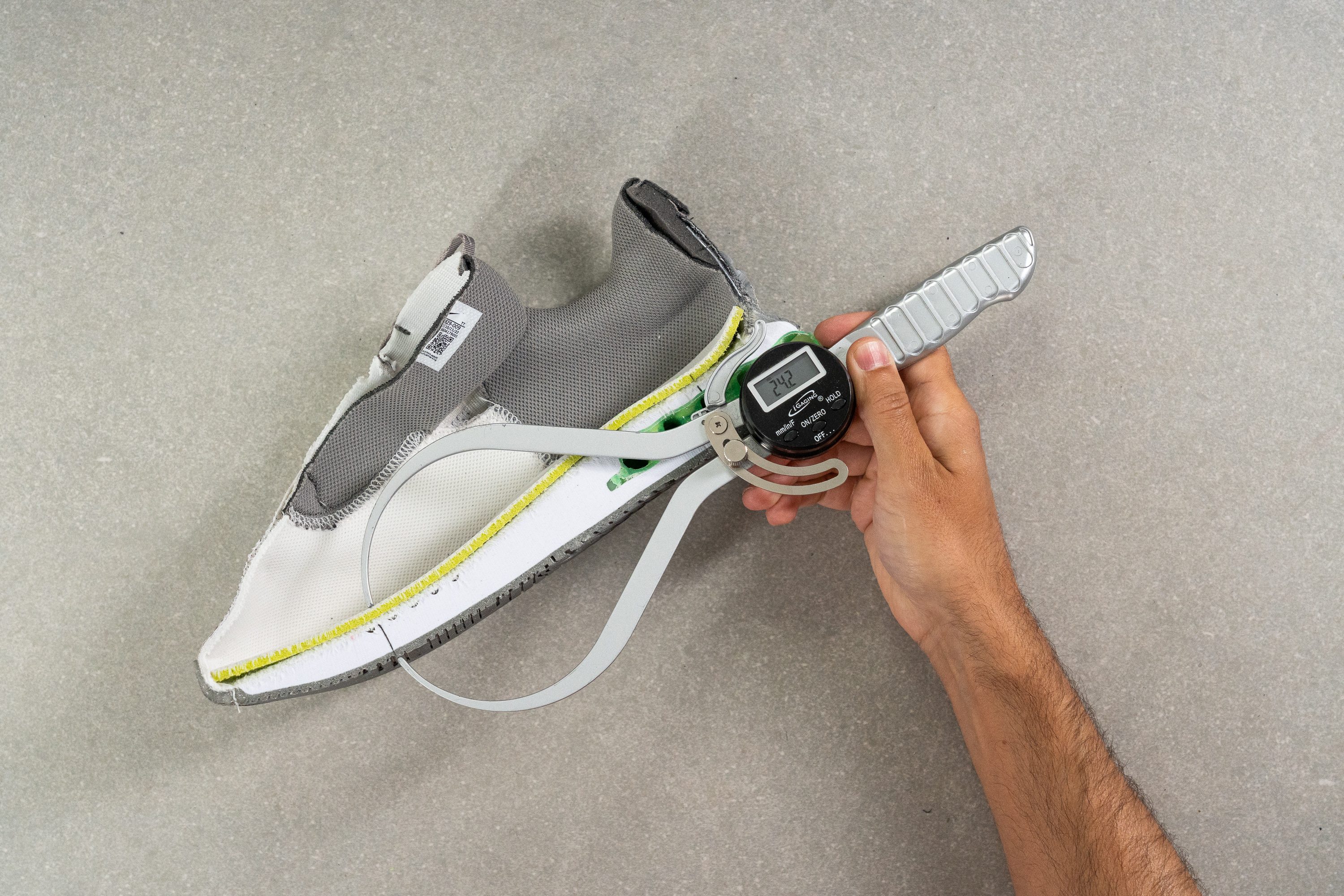
| Air Max Alpha Trainer 5 | 24.2 mm |
| Average | 18.2 mm |
Drop
The difference in stack heights gives us a whopping drop of 12 mm! This amount of cushion is very unusual for a training shoe. Geez, it is even more than what you get in a standard running shoe (8.6 mm)!
So, if you prefer feeling close to the ground while working out, get a shoe with a 4-6 mm drop instead (like Nike Metcon or Nike Free Metcon).
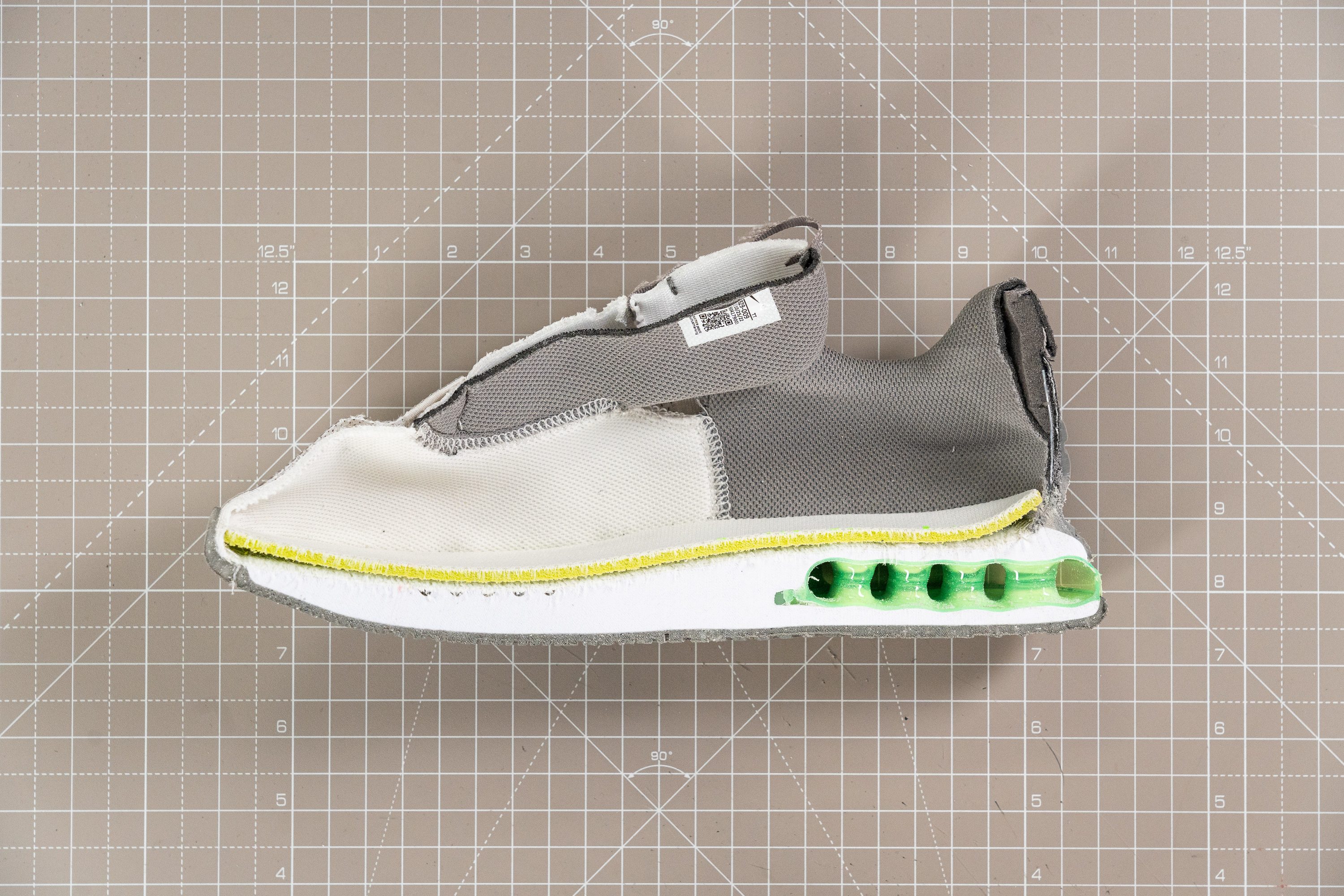
| Air Max Alpha Trainer 5 | 12.0 mm |
| Average | 6.2 mm |
Midsole softness
Pressing a durometer against the foam, we found that it strikes a balance between soft and firm at 24.8 HA. It is right at the average of what we've tested in other training shoes.
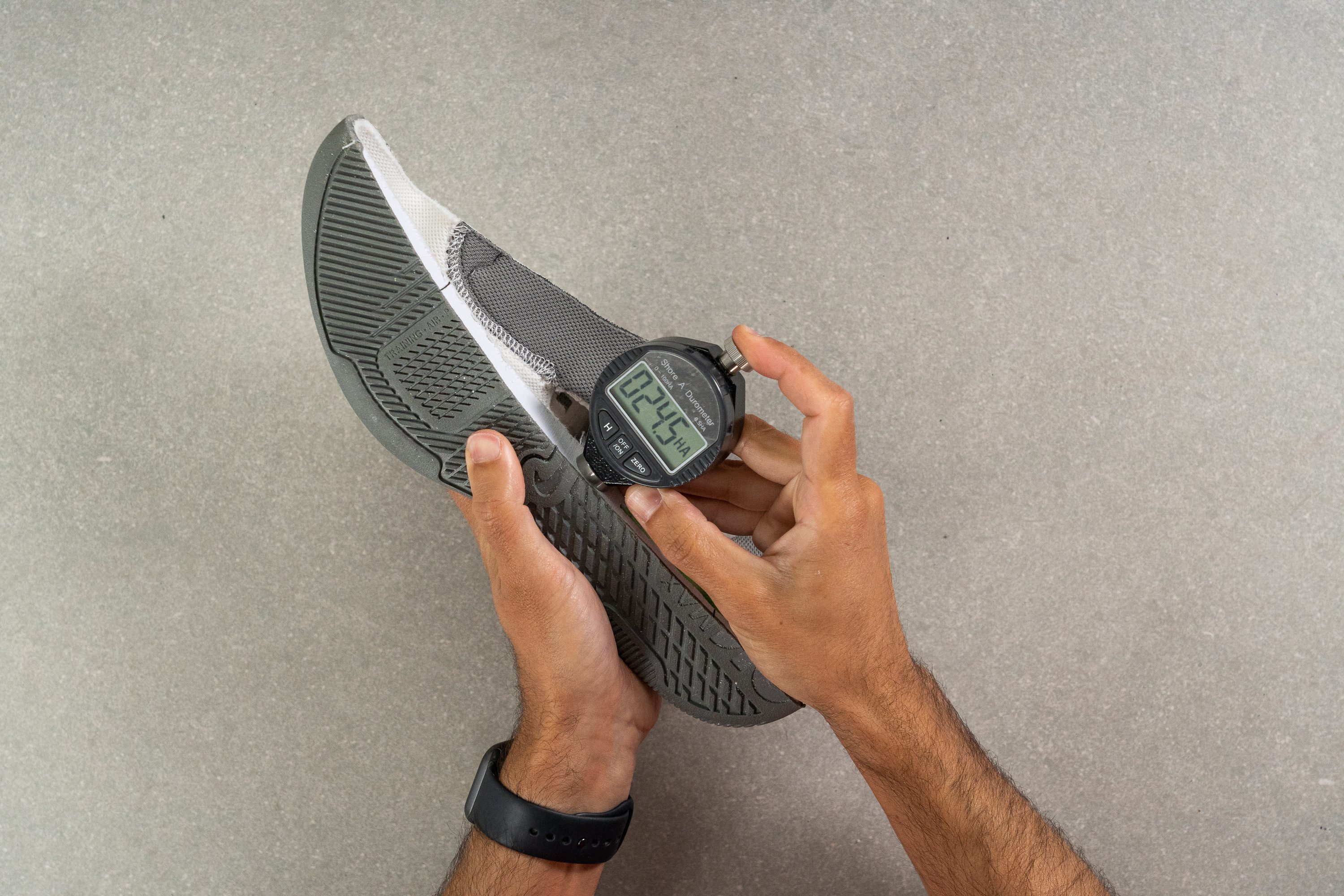
| Air Max Alpha Trainer 5 | 24.8 HA |
| Average | 27.8 HA |
Insole thickness
Even taking out the insole won't make this shoe more down-to-earth. Based on our measurement, the insole is just average in thickness. At 3.6 mm, it is even a little thinner than average.
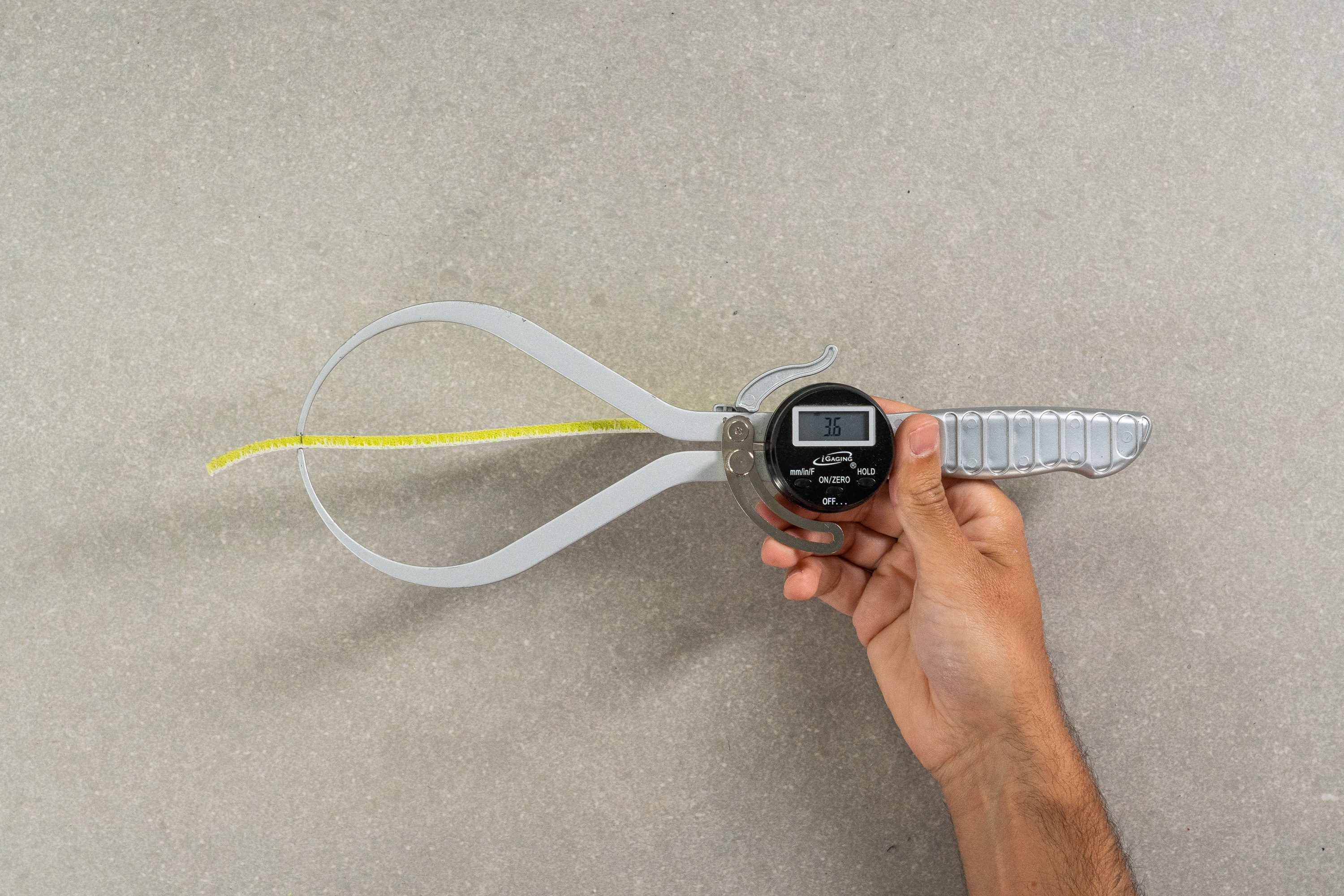
| Air Max Alpha Trainer 5 | 3.6 mm |
| Average | 3.9 mm |
Stability
Lateral stability test
It probably comes out as obvious from the previous section that the Alpha Trainer 5 is not the best option for heavy lifting. However, there is still hope.
In our lateral stability assessment, this Nike trainer was not as wobbly as we initially expected. But as opposed to the brand's claims of "stability for lifting whether it’s a light or heavy day," we highly recommend keeping it light when it comes to lifting in this shoe.
Torsional rigidity
When twisted, the Alpha Trainer 5 does not give up that easily. On a 1-5 scale, we rated its torsional rigidity as 4, which is stiffer than average and is a pretty good sign of stability.
It prevents the foot from rolling over the squishy Max Air unit.
| Air Max Alpha Trainer 5 | 4 |
| Average | 2.7 |
Heel counter stiffness
The heel counter has some good firmness to it, locking the ankle down in place. We rated it as 3 out of 5 on a stiffness scale, which is a bit stiffer than the average.
The well-padded collar helps with the foothold as well.
| Air Max Alpha Trainer 5 | 3 |
| Average | 2.7 |
Midsole width in the forefoot
Finally, this Nike shoe has a nice and wide footprint, the same as all the other cross-trainers we've tested (+1 to stability). At the widest part of the forefoot, the Nike Alpha Trainer 5 measures in at 110.1 mm.
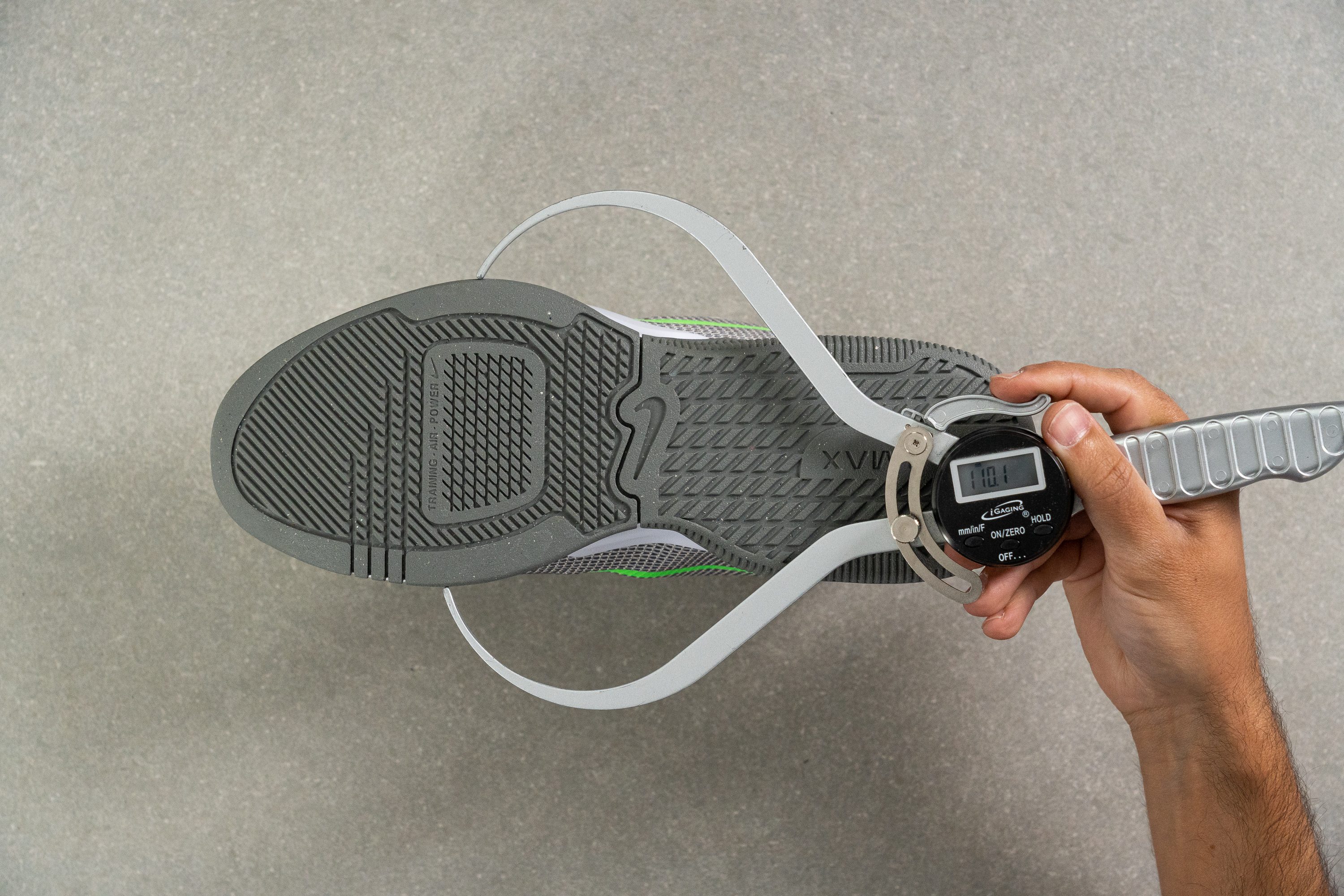
| Air Max Alpha Trainer 5 | 110.1 mm |
| Average | 110.3 mm |
Midsole width in the heel
The shoe is also sufficiently wide in the heel. We measured it to be 87.8 mm at the widest point.
Even though we only checked the widest parts of the heel and forefoot, you can see that the platform remains rather wide all throughout its length.
This is what makes the shoe safe enough for moderate lifting.
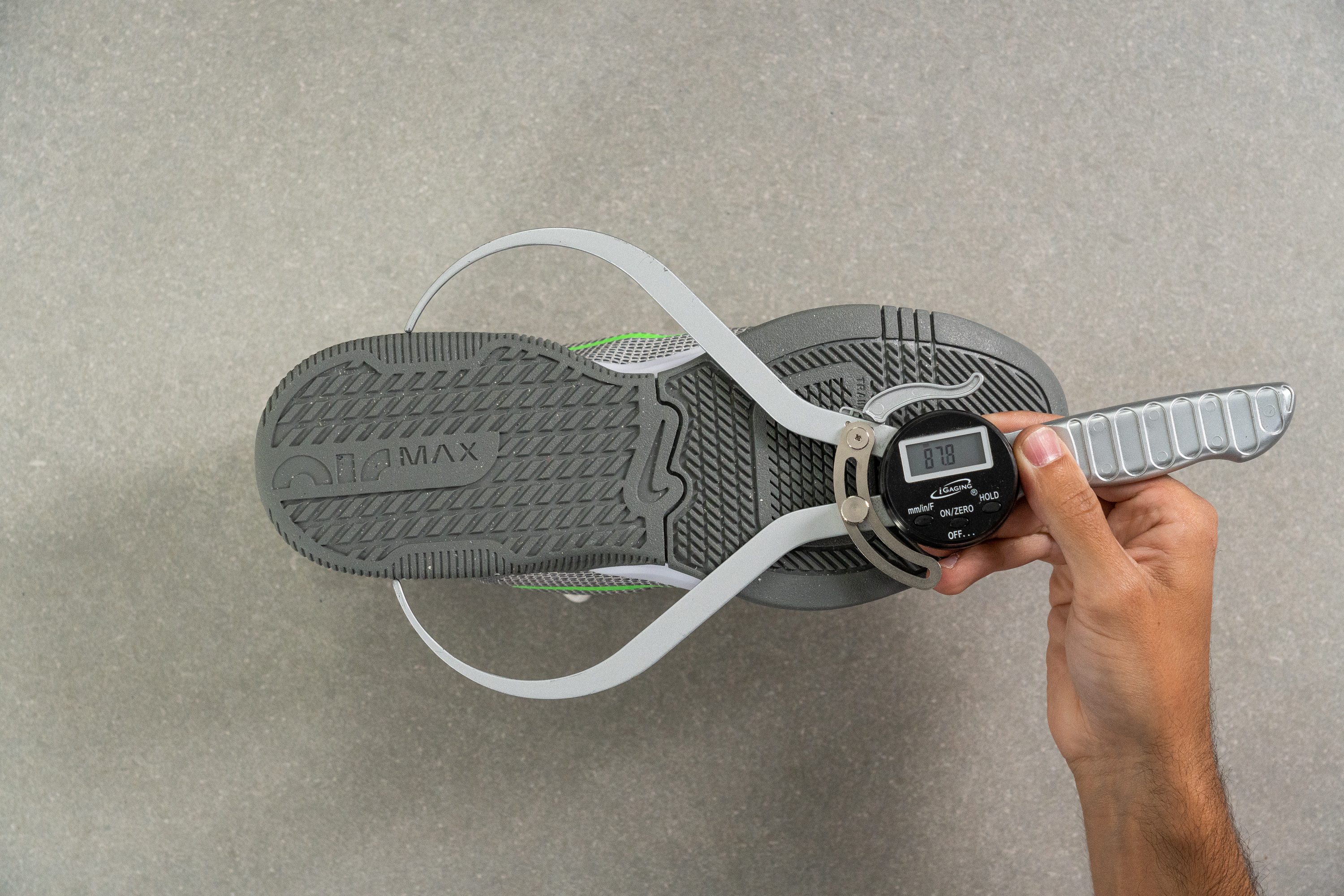
| Air Max Alpha Trainer 5 | 87.8 mm |
| Average | 87.4 mm |
Flexibility
Stiffness
At first impression, the Alpha Trainer 5 is not the most flexible shoe for doing planks and lunges.
This was clearly reflected in our controlled flexibility test with a force gauge involved. The shoe requires a force of 27.1N to be bent to a 90-degree angle - a little more than average but not critically.
On the bright side, we can see how a few workouts can help to break in this stiffness.
Also, walking in the Alpha Trainer 5, we really enjoyed its smooth ride. It never felt stiff.
| Air Max Alpha Trainer 5 | 24.9N |
| Average | 17.8N |
Grip / Traction
After a few training sessions, we can say that the outsole grip on the Alpha Trainer 5 is just fine. Nothing to write home about but it is reliable.
Size and fit
Based on our measurements and personal assessment, the Nike Air Max Alpha Trainer 5 runs true to size.
However, athletes with wide feet may benefit from going half a size up.
Toebox width at the widest part
Measuring the widest part of the toebox at 101.5 mm, we found it to be of average width compared to other cross-trainers.
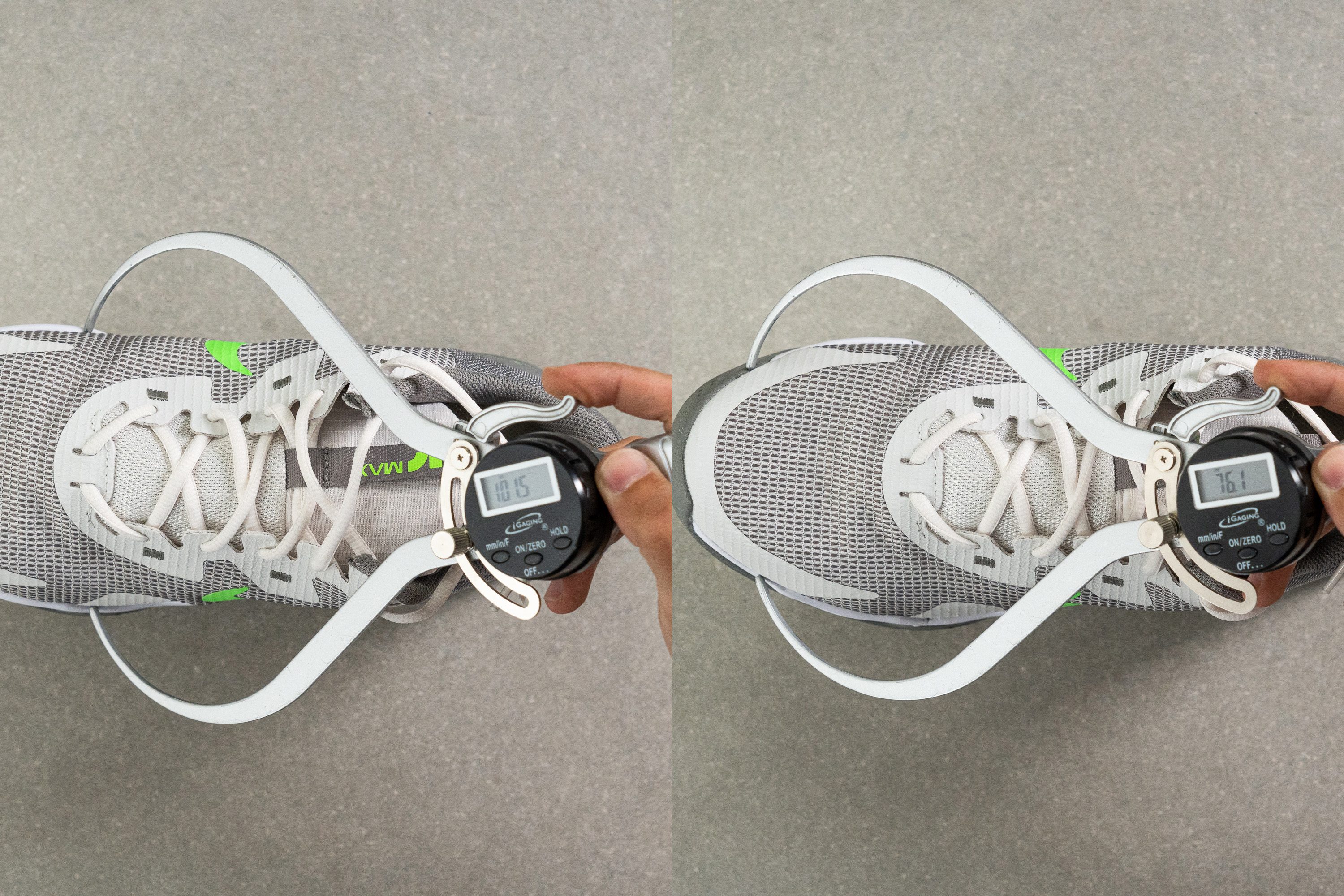
| Air Max Alpha Trainer 5 | 101.5 mm |
| Average | 100.3 mm |
Toebox width at the big toe
However, closer to the toes, the shoe gets narrower than average at 76.1 mm.
This may feel constricting to wide feet. We recommend going half a size up in that's your case.
| Air Max Alpha Trainer 5 | 76.1 mm |
| Average | 78.3 mm |
Tongue: gusset type
The tongue is attached to the upper halfway through its length. Thanks to this, we never experienced any tongue shifting.
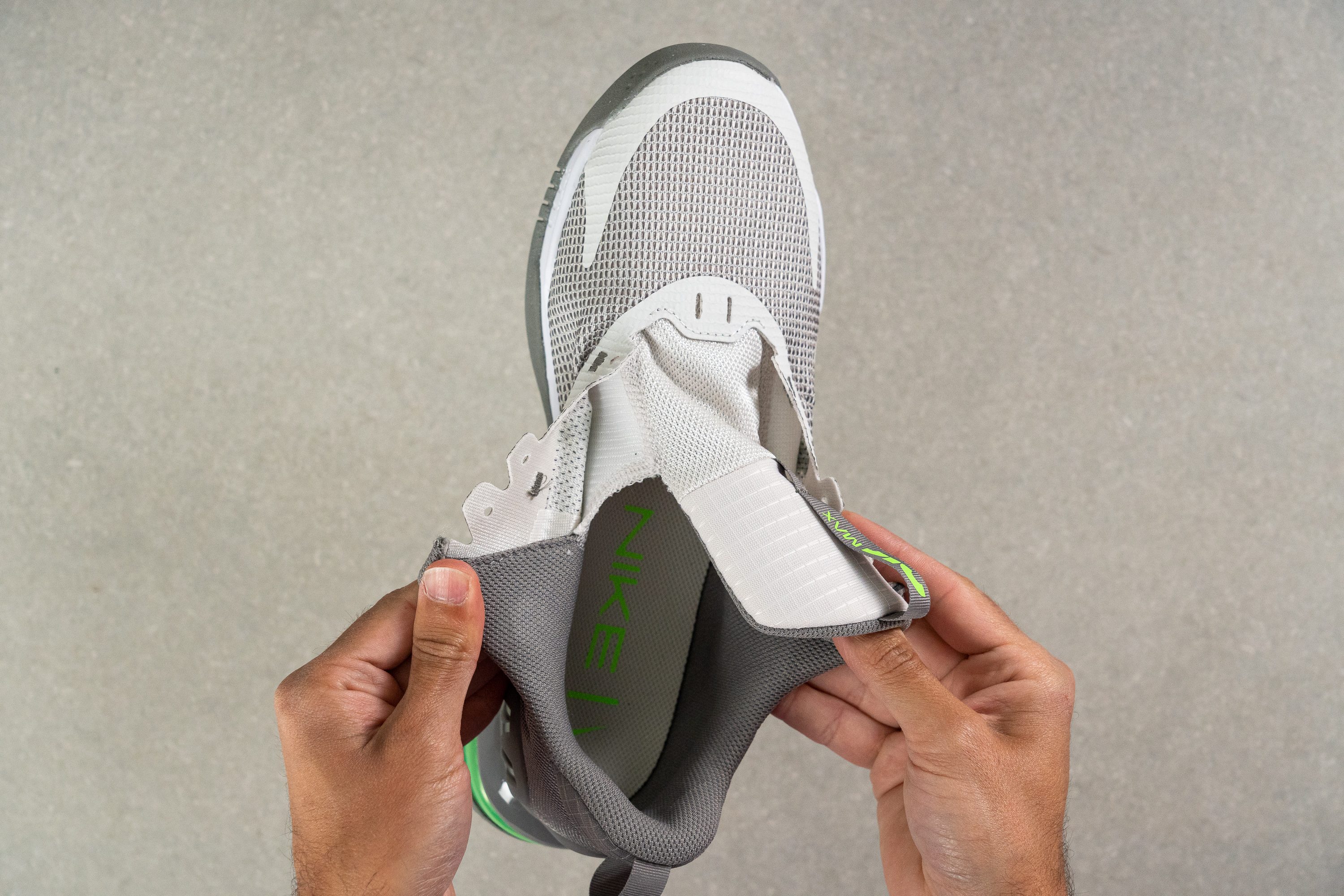
| Air Max Alpha Trainer 5 | Both sides (semi) |
Comfort
For a budget-friendly trainer, the Alpha Trainer 5 has a really sweet in shoe-feel. It is padded in all the right places causing no rubbing or pinching.
Tongue padding
Based on our measurement, the tongue is adequately padded. It is 5.5 mm thick, which is just average for training shoes.
No lace bites in this trainer.
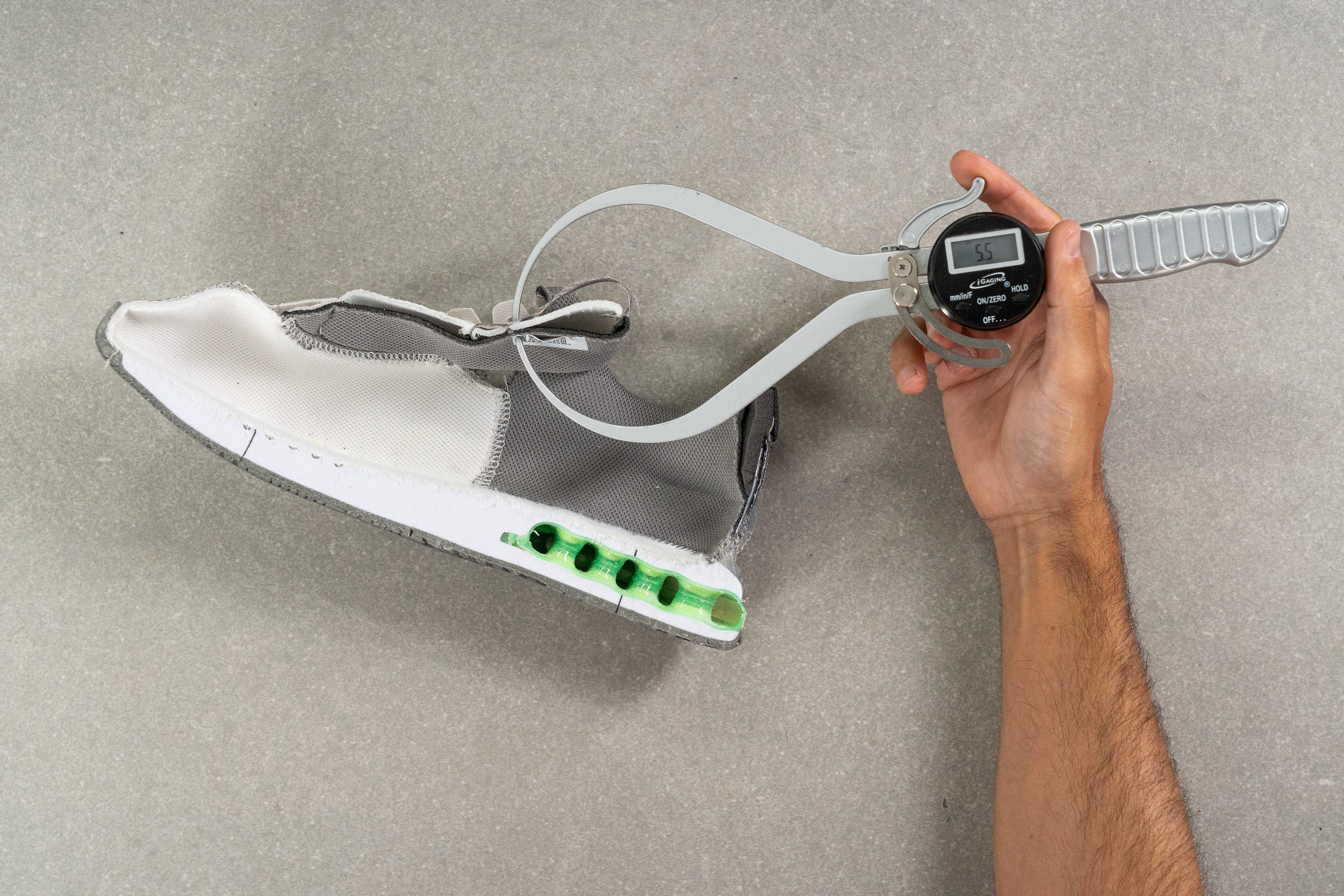
| Air Max Alpha Trainer 5 | 5.5 mm |
| Average | 5.4 mm |
Heel tab
A handy finger loop is attached at the back, making it easy to slide right into the shoe.
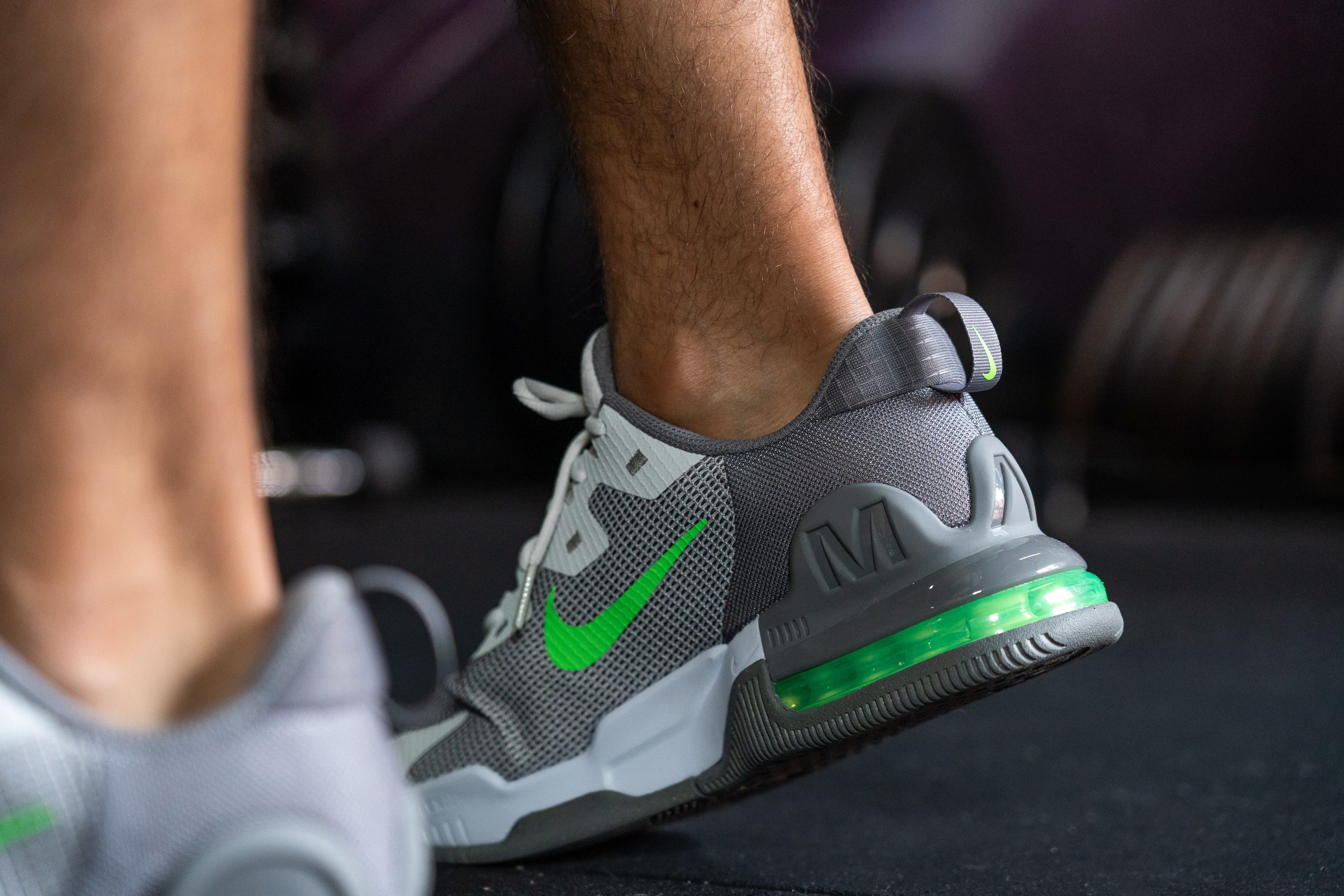
| Air Max Alpha Trainer 5 | Finger loop |
